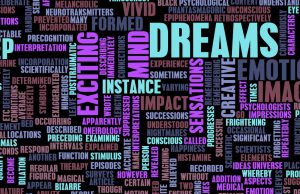 Sleep studies began with the invention of the electroencephalograph (EEG). The EEG records electrical impulses from your brain, which is active even during sleep. During the 1950s, Eugene Aserinsky discovered REM sleep using the electroencephalograph. Since then studies have shown that sleep consists of stages. These stages can be determined according to the different brain wave patterns your brains produce during sleep. Today, your Livonia, MI dentist, Dr. James Stewart, continues his two-part series on sleep states with a discussion of REM sleep.
Sleep studies began with the invention of the electroencephalograph (EEG). The EEG records electrical impulses from your brain, which is active even during sleep. During the 1950s, Eugene Aserinsky discovered REM sleep using the electroencephalograph. Since then studies have shown that sleep consists of stages. These stages can be determined according to the different brain wave patterns your brains produce during sleep. Today, your Livonia, MI dentist, Dr. James Stewart, continues his two-part series on sleep states with a discussion of REM sleep.
REM Sleep
In Dr. Stewart’s last blog we learned that a complete cycle of non-REM sleep progresses from stage one, through stage four before REM sleep begins. REM sleep is characterized by rapid movement of the eyes (REM) during dreaming, and muscle paralysis. While your muscles become immobile, your eyes rapidly move in different directions. This combination of muscular immobility during an excited brain state is the reason REM sleep is referred to as paradoxical sleep.
How Much REM?
The percentage of time spent in REM sleep is highest for infants and decreases as people age. For an adult, REM sleep can last anywhere from 90 to 120 minutes which is about 20 to 25 percent of your total sleep. REM sleep lasts for more than 50 percent of an infant’s sleep. Throughout one night’s sleep, REM sleep occurs in 4 to 5 cycles, each cycle lasting longer than the previous. The first cycle usually occurs about 90 minutes after light sleep and typically lasts 10 minutes. The final occurrence of REM can last up to an hour. During REM sleep brain activity is equal to that of being awake. People can experience very vivid dreams during this stage. If your body misses out on REM sleep one night, it will make up for it by spending more time in REM sleep the next.
Benefits of REM Sleep
During REM sleep your brain processes and consolidates your emotions, stores memories, and neutralizes stress. It is believed that regions of the brain involved in learning and developing new skills are stimulated during REM sleep, rendering the time spent in REM important for learning. Studies have indicated the more time you spend in REM sleep the better your mood throughout the following day.
About Dr. Stewart
James R. Stewart, Jr, DDS, PC and our compassionate staff proudly serve patients of all ages from Livonia, Farmington Hills, Plymouth, Northville, Dearborn Heights, Garden City, and all surrounding communities. If you think you or a loved one is dealing with a sleep disorder, call our office today at (734) 425-4400, to schedule an appointment. At Dental sleep Medicine of Michigan, we are committed to forming trusting relationships with our patients so we can work together to achieve sound treatment and a future full of restful nights.






